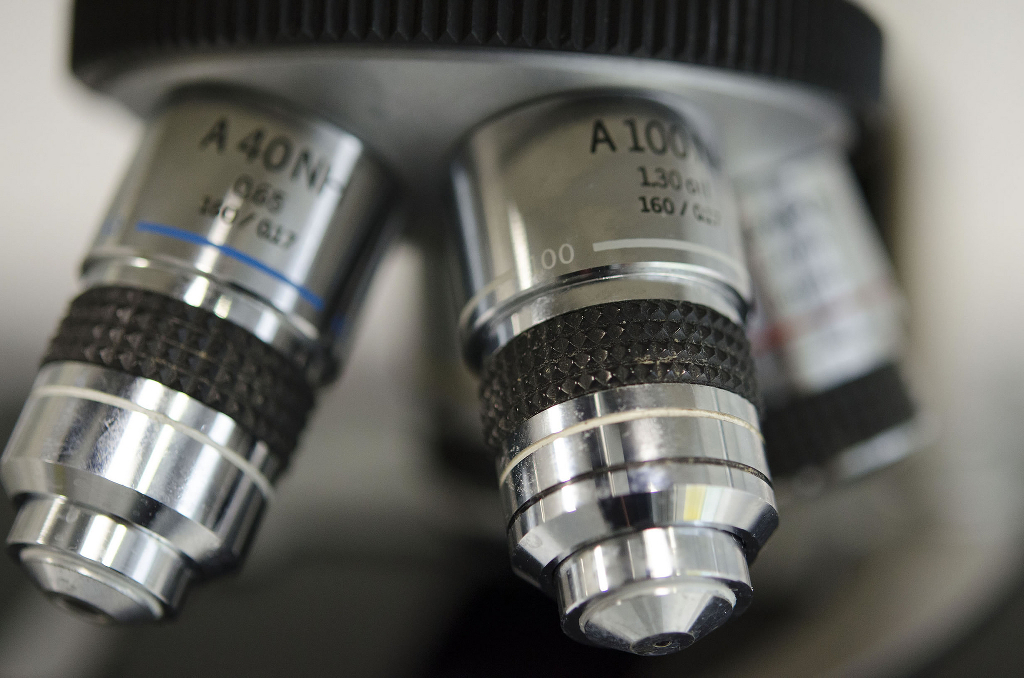Since the election, many have lamented the psychic pain that now comes with following the news. Turning on CNN or opening a Twitter feed has become a trial to be endured. Like others, I’ve needed to limit my exposure, escaping more often into fiction and Netflix.
As a biologist, I have another haven from the anxieties of watching American politics lurch toward the ravine: the laboratory. Border walls and botched nominations can’t contaminate a well-designed experiment revealing unexpected insights into the natural world. And while I don’t envision that the worried Bernie bros or I’m-still-with-hers of America are going to take up pipettes and microscopes en masse, I propose that engagement with science can be a balm in times of societal upheaval.
Science also presents an alternative vision of American greatness, based not on economic, military, or spiritual dominance, but on our ability to be leaders and partners in transformative research.
The recent discovery of seven Earth-like exoplanets orbiting a nearby star was a welcome respite from travel bans, mass deportation, and regressive bathroom directives. The news story seemed like a throwback: an international consortium—with strong U.S. participation—achieving unambiguous success. It reminded us that while we, as a culture, can be self-interested and cruel, we can also contribute to tremendous feats of cooperation and discourse—in this case, enough to extend our sight trillions of miles into the cosmos.
The topic of science has, of course, been entwined with Trump’s political ascendency from the beginning. As a climate change denier extraordinaire with overt hostility toward carefully reasoned conclusions, he has generated palpable concern among the scientific community. The upcoming March for Science demonstrates that the voices of American researchers are rising against the threat of governmental suppression and data meddling. It’s another form of us-against-them identity politics where the “us” are practitioners of the scientific method.
But I’m arguing for something different. I’m making a pitch for scientific engagement as a politically restorative exercise. When I read about those seven planets circling a salmon-colored dwarf star—and how careful measurement revealed not only their sizes and compositions but could potentially clinch the search for extraterrestrials—I felt optimistic in a way that has become rare.
And there are other, equally transcendent scientific stories every week.
As an antidote to alt-right hate speech, I recommend learning about CRISPR-Cas. This astonishing molecular machinery has sparked a revolution in genetic editing that may lead to cures for diseases as diverse as malaria and Alzheimer’s. The next time Kellyanne Conway violates federal ethics rules, consider Googling how graphene, the first two-dimensional synthetic material, was discovered by combining pencil shavings and Scotch tape, and how it’s permitting development of computers thousands of times faster than any before.
This is science not as a political stance but as an apolitical source of civic pride—a counterweight to the foibles exhibited, in all fairness, by Republicans and Democrats alike. It’s a reliably safe place to go. That’s not to say that science won’t challenge you. Good science, like a good workout, should leave you a little winded.
But scientific stories are never politically partisan stories. The two realms, in their pure forms, simply do not overlap. Scientific excitement is equally accessible across the entire political spectrum.
Scientists and non-scientists must recognize our nation’s labs and research institutes as more than simply turf to be defended. These are the places that generate ideas so powerful they become cultural events, precious national treasures. Active celebration of these ideas is a potent form of patriotism.
There is an opportunity here, obscured by the political gun smoke, to be drawn together by great science. And there is precedent: from the troubled antebellum era, when explorers and naturalists were celebrities, and from the unifying effect of the Apollo missions during the grim years of civil rights battles, Vietnam, and the Cold War.
Wouldn’t it be ironic if the election of a remarkably unscientific president ushered in a new American season of pride and support for science? It may sound counterintuitive, but—as any researcher can tell you—things don’t always work the way you expect.
If the hot news of the day has you incensed and you’ve come to think of the TV anchors as sadists, consider joining me in the cooler shade of hypotheses, molecules, cells, and dwarf stars. It’s a place where alternative facts get weeded out by peer review, polls are irrelevant, and anyone who wants to understand the truth is always welcome.
Photo: University of Liverpool Faculty of Health and Life Sciences/Creative Commons

